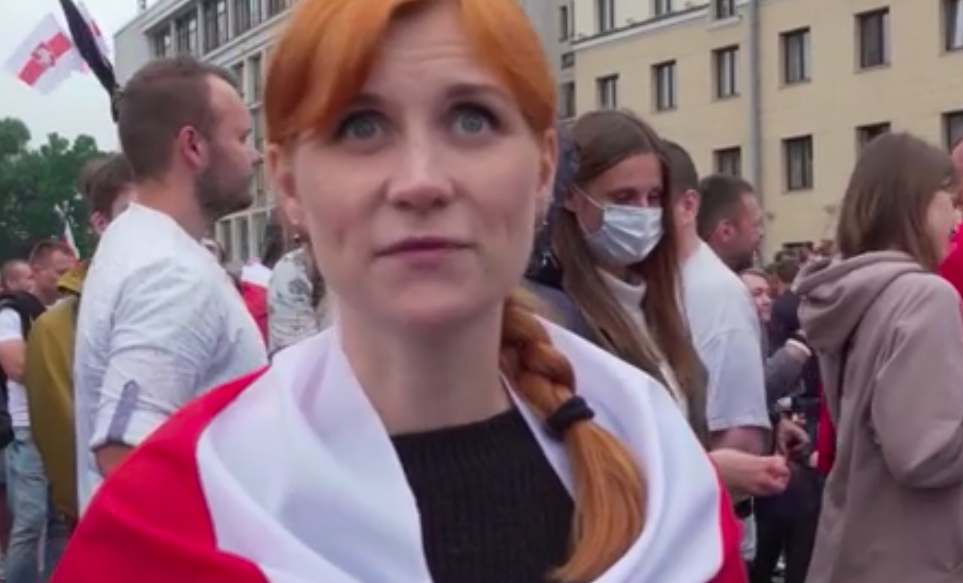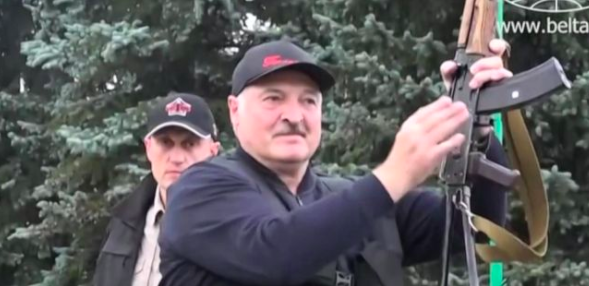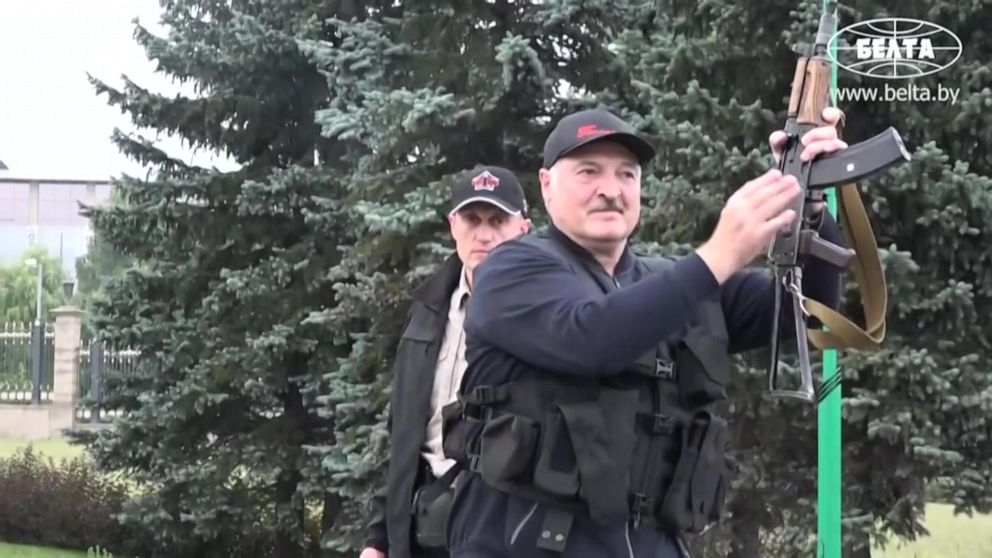
It’s presently unclear what is happening in Belarus. The protests have definitely weakened, due to a refusal of members of the working class to participate, but the millennial women who were the driving force behind it are still at work, attempting to topple the bad daddy.
There are still significant Mike Pompeo-style rallies in Minsk, but they’re smaller. It looks to me as though buses full of Poles have been brought in, with various organizations also busing in confused rural people.
Further, the rallies in support of the government are getting bigger as the NATO/ANAL protests shrink.
Belarus jailed two opposition leaders for 10 days on Tuesday as the government pursued a crackdown on the few figures still at large, while schoolteachers led a new protest of thousands against President Alexander Lukashenko.
Despite most major opposition figures being in jail or exile, Lukashenko has so far failed to put down protests against his 26-year-old rule, more than two weeks after an election his opponents say was rigged.
Olga Kovalkova and Siarhei Dyleuski were brought to separate courts where they were each jailed for 10 days. Kovalkova is the main representative still in Belarus of opposition candidate Sviatlana Tsikhanouskaya, and Dyleuski has led strikes at Minsk’s flagship tractor factory.
Both are senior figures in an opposition Coordination Council, set up last week with the self-described aim of negotiating with the authorities. They were arrested on Monday.
Lukashenko has accused the new council of attempting to seize power, and prosecutors have launched a criminal case.
They’re obviously attempting to seize power.
In the latest protest, thousands gathered at the ministry of education to demonstrate against a threat by Lukashenko to fire schoolteachers who do not support his government. Rallies have typically attracted thousands during the week, swelling to tens of thousands on weekends.
“I have come so that teachers are not afraid, so that their voice can be heard, so that they can work even if they have a different view from the authorities,” said a literature teacher who gave her name as Svetlana.
Lukashenko has denied election cheating. He has called the protesters “rats” and says they are funded from abroad.
His posturing has grown steadily more confrontational: in recent days he has been pictured on state television with a Kalashnikov rifle and tactical vest. Yet so far, a long-standing threat of a decisive police operation to clear the streets has yet to materialise.
Another opposition council member, Pavel Latushko, a former culture minister and head of the main state drama theatre, was questioned by investigators on Tuesday but not arrested. He emerged saying he would go back to work and the council’s activities were not illegal.
Arresting protest leaders is either a bad move you make when you’re losing control and acting in desperation (example: anti-Apartheid revolution in South Africa), or a good move that you make when you’re assured of imminent victory and simply stomping out the remaining hope of the anti-socials (example: recent Hong Kong arrests).
It’s not clear which is the case here, and it actually could be either. The fact that Russia is involved in managing the situation probably means that if they were losing, they wouldn’t do something desperate like arrest protest leaders.
The fact that the police haven’t been sent in to just clear the protests out also indicates that Lukashenko is not acting out of desperation.
It looks like he might have this under control. But anything can happen in these insane times, and the whole thing could be flipped by some event we can’t even foresee right now.

